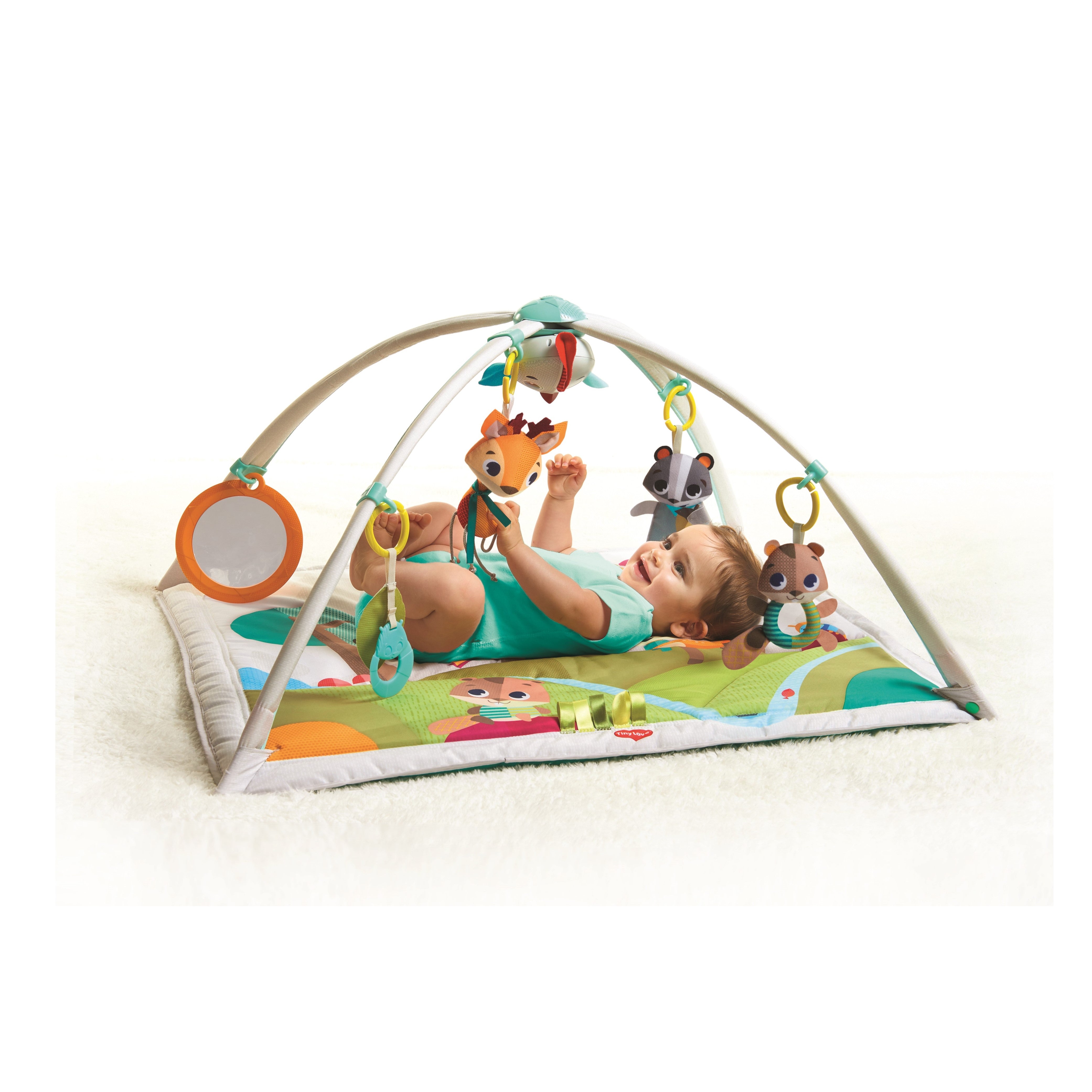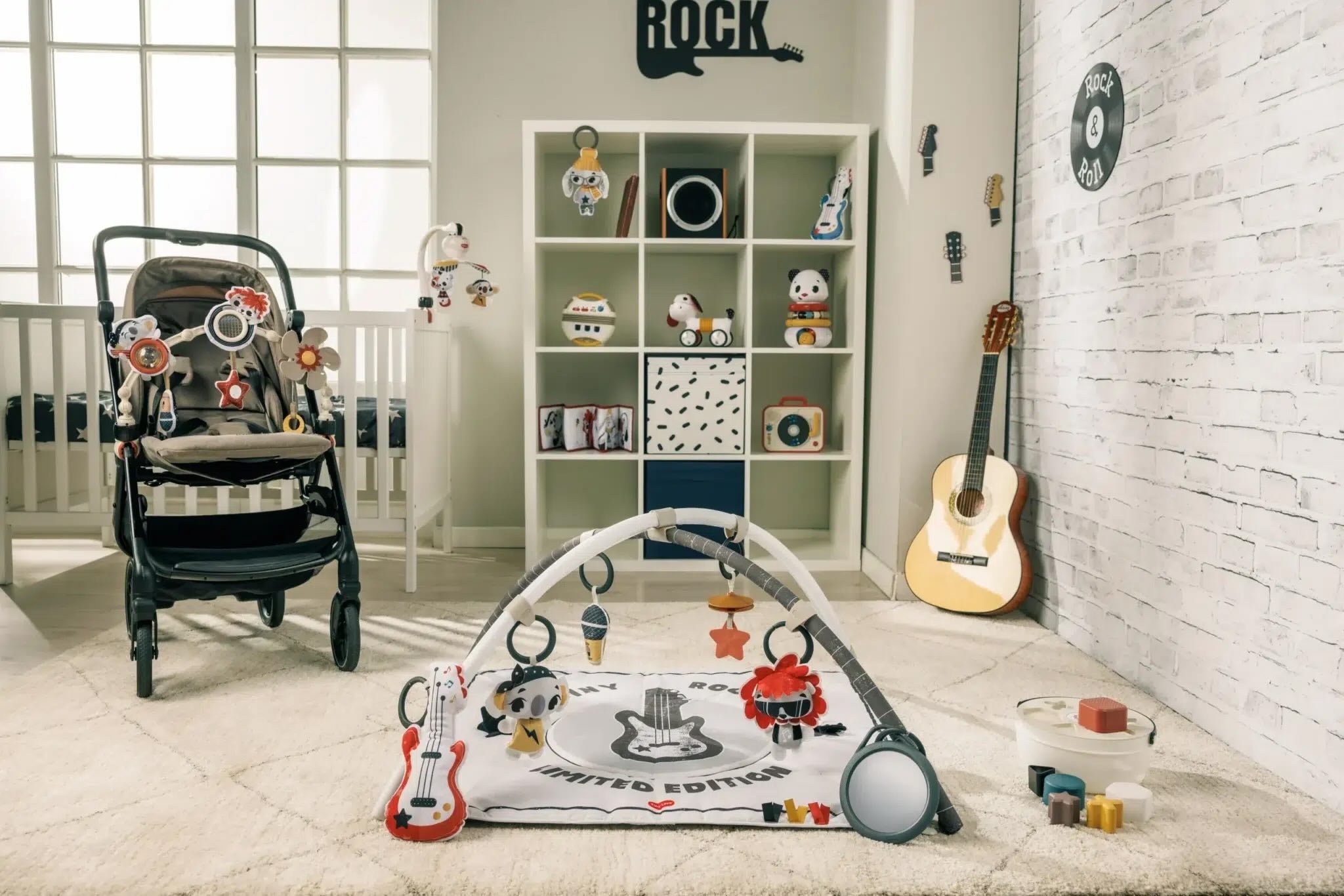At the moment of birth, baby’s brain is a little over a quarter of the size of an adult’s brain and grows rapidly in the first three years. This ione reason why the first years are so significant in helping babies realize their full potential. Listening to music is one excellent way to do so.
Realizing Baby's Full Potential
By Ran Oren
At the moment of birth, baby’s brain is a little over a quarter of the size of an adult’s brain. During a baby’s first three years of life, the brain grows significantly, slowly catching up with the size it will eventually be. This biological fact can help us understand why the first years are so significant in helping baby realize his full potential. Listening to music seems to be one excellent way to do so. There are many things that can contribute greatly to your baby’s development during the first three years, encouraging her cognition and skills by creating an adequately stimulating environment. Many different stimuli can contribute to babies’ development, but offering a musical environment, singing songs and dancing to rhythms is certainly a very enjoyable and effective way of expanding your baby’s horizons. Recent research conducted on the subject of music has found that music has a positive effect on all human beings in general and on babies and toddlers in particular.
Many researchers strongly believe that music plays an important role in building babies’ emotional basis and helping them gain a sense of confidence.

Discovering the Mozart Effect
In the early nineties, an interesting study conducted in the US established the “Mozart Effect Theory”, which led to further research in the field of music and babies. The study took place at the University of California and was conducted by Rauscher, Shaw and Ky . In this study. college students were separated into three groups: 1. A group that listened to a specific classical musical piece composed by Mozart. 2. A group that listened to other, repetitive music. 3. A group that listened to recorded stories. The researchers managed to establish a connection between listening to music and spatial temporal reasoning, which is the ability to think about time and space. It showed that listening to music actually made a certain area of the brain develop: the area in charge of orientation and spatial temporal reasoning. The results of this groundbreaking study had given rise to a heated debate and paved the way for many other studies that sought to examine the effect different kinds of music had on various human qualities and on brain development. Naturally, such studies were especially interested in the influence music had on the brain in the first three years of life; the period when the brain develops and changes most.
The Advantages of Music
The advantages of listening to music are numerous. This article does not presume to present all the advantages in full, but rather to offer a peak into this wondrous field of research. It seeks to delineate the influence harmonious music has on the brain and explain the impact it can have both physiologically and psychologically.
Music Perception
The ability to perceive music precedes the ability to perceive and understand language, In fact, the perception of music is the basis for acquiring language <2> . According to Perlovsky <3> , there is a direct link between grasping concepts and emotions. The first concept a baby is able to grasp is his mother’s mood. He does this by listening to the rhythm and pitch of her speech; he learns to establish her mood and emotions through the music of her voice. Long before baby is able to comprehend language, he understands the music that is at its core.
Different Kinds of Music
Babies have a very musical ear and can tell the difference between happy and sad music. A study that took place at Brigham Young University in the US <4> , found that 9-month-old babies were able to tell the difference between happy and sad music in the same way they knew to tell the difference between happy and sad faces. Babies are also able to tell the difference between various musical instruments. In a study that took place at McGil University in Canada, researcher Beatriz Ilari <5> showed that 8-month-old babies could tell the difference between different pieces composed by Ravel and could distinguish between piano recitals and musical pieces played by a whole orchestra. Additionally, she found that babies remembered the musical pieces and knew the difference between them two weeks after they were introduced to the music. This research shows that babies’ ability to listen and distinguish is highly developed at very early stages and that they can remember their musical experience.
Harmony
Research has also found that babies prefer consonant to dissonant music. In another study <6> babies were presented with classical musical pieces (such as Bach’s Minuet) that were recorded in two versions: one harmonious and the other dissonant. The babies showed evident preference for the harmonious versions of the musical pieces.
Many different stimuli can contribute to babies’ development, but offering a musical environment, singing songs and dancing to rhythms is certainly a very enjoyable and effective way of expanding your baby’s horizons.
Imagination
Musical training can also help develop the imagination and the ability to visualize sound <9> . Neuroimaging techniques (techniques that image the structure/function of the brain) established that the area in the cortex which is in charge of listening and deciphering music is also in charge of imagination and sound visualization. As part of the research abovementioned, individuals listened to music and were afterwards asked to perform various visualization exercises. The results were clear: those who listened to music were better at performing the sound visualization exercises. However, there did not seem to be a difference between the groups when it came to sight visualization.
From these and other studies, music proves to be an important element in babies’ development. A musical environment in the first months and years of a baby’s life can clearly have a positive effect on the emotional and perhaps even cognitive development of a child.
Any advice and information provided in this website is given as suggestions only and should not be taken as a professional medical diagnosis or opinion. We recommend you also consult your healthcare provider, and urge you to contact them immediately if your question is urgent.
<1> Rauscher FH, Shaw GL, Ky KN. Music and spatial task performance. Nature1993;365:611 <2> Music Technology Group, Universitat Pompeu Fabra, Spain and Sound Perception and Design Group, Institut de Recherche et Coordination Acoustique/Musique, France, Hendrik Purwins, 2010 <3> Perlovsky, L.I. Evolving Agents: Communication and Cognition. Chapter in Autonomous Intelligent Systems: Agents and Data Mining, eds: V. Gorodetsky, J. Liu, V.A. Skormin. Springer-Verlag GmbH, 2005. <4> Ross Flom, Douglas A. Gentile, Anne D. Pick , Department of Psychology, Brigham Young University, USA, 2008 <5> Ilari, Beatriz Senoi
, Music cognition in infancy: Infants' preferences and long-term memory for complex music, Dissertation Abstracts International Section A: Humanities and Social Sciences. 2004, pp. 4262. <6> Daniela Sammler, Maren Grigutsch, Thomas Fritz, Stefan Koelsch, Music and Emotion: Electrophysiological correlates of the processing of pleasant and unpleasant music, Psychophysiology, Volume 44, Issue 2, pages 293–304, March 2007 <7> Laurel J. Trainor, Elissa D. Clark, Anita Huntley,Beth A. Adams, The acoustic basis of preferences for infant-directed singing, McMaster University Canada (Revised December 1996). <8> Sebastian Kirschner, Michael Tomasello , Department of Developmental and Comparative Psychology, Max Planck Institute for Evolutionary Anthropology, 04103 Leipzig, Germany, Initial receipt 25 April 2009; final revision received 24 April 2010 <9> Andre Aleman, Mark R. Nieuwenstein, Koen B.E., Edward H.F, Psychological Laboratory , Department of Psychonomics, Utrecht University, Utrecht , The Netherlands, Helmholtz Institute, 2000
Helping Form Relationships
Many researchers strongly believe that music plays an important role in building babies’ emotional basis and helping them gain a sense of confidence. Additionally, music can also help establish a healthy relationship between babies and their caregivers <7> . Parents and caregivers across the globe sing to children and feel that singing and playing music can help calm babies and strengthen the bond established between a baby and her caregivers.
Social Skills
Music can help encourage the formation of social relationships and help develop social skills <8> . Human beings are the only mammals to create music. Music’s evolutionary basis seems to be quite a riddle to many researchers. In many cultures, music, the composition of music and movement to the sounds of music are an inseparable part of life. The great significance of music has led to the assumption that music plays an important role in helping babies and children form social relations. In another experiment, which serves to support this assumption, four-year-old children were given a choice between various group activities. The group that focused on singing and dancing together was the group where researchers saw the most extensive social interaction between the children.





